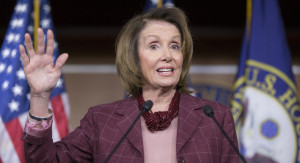You may choose to believe or disbelieve this notion — given my intense criticism of the current president of the United States — but I do believe that elections have consequences.
One of those consequences allows presidents to build their administrations with men and women with whom they feel comfortable.
However, basic qualifications for a high-level Cabinet post must be included in whomever gets the nod from a president. That brings me to a central point of this blog post, which is that several of Donald Trump’s choices lack any experience pertinent to the job to which they have been chosen by the POTUS.
Pete Hegseth has never run anything in his life, let alone a massive bureaucracy like the Pentagon; RFK Jr. has zero experience administrating public health policy; Tulsi Gabbard has no experience in espionage; Kash Patel wants to destroy the FBI, an agency Trump has selected him to run.
President George H.W. Bush nominated Clarence Thomas in 1991 to succeed Thurgood Marshall on the Supreme Court. He called Judge Thomas “the most qualified” man in America to succeed the nation’s first Black SCOTUS justice. I disagreed with his description of Thomas, but I wrote then that he was the president and he deserved to nominate who he wanted. Thomas at least was qualified in the strictest sense of the word to serve.
Trump is including a cast of clowns to join his administration. Yeah, elections have consequences, but they appear to be biting back on the man who claims a “mandate” that enables him to pick a team of losers.
That is not how anyone ever should define “good government.”



